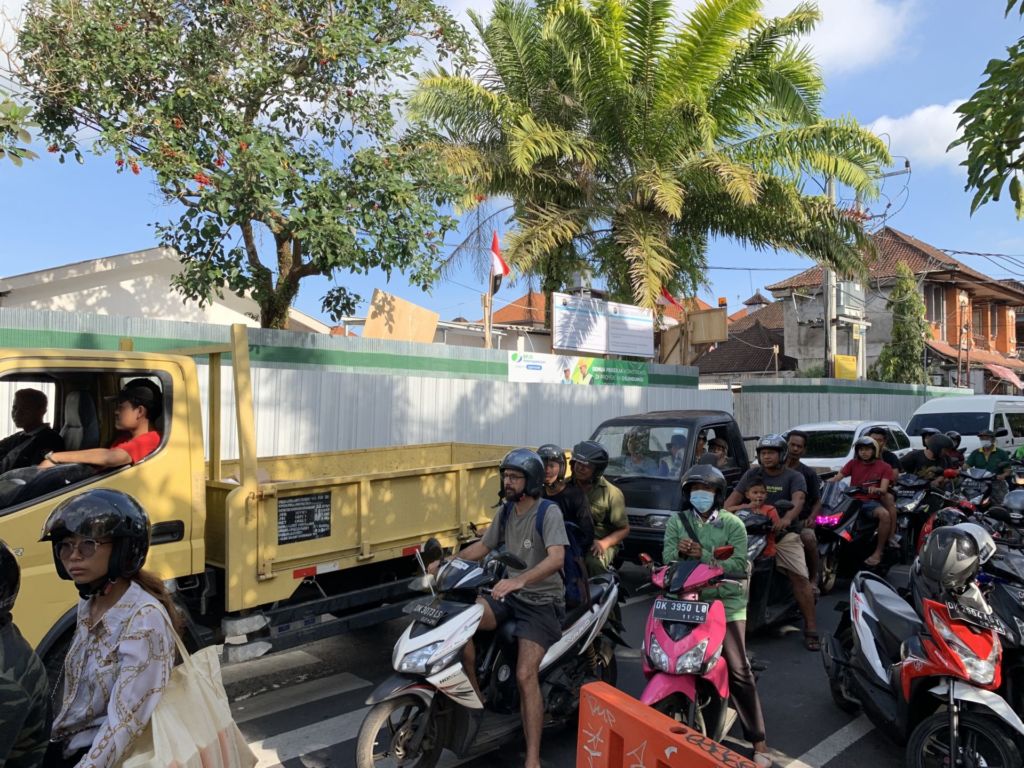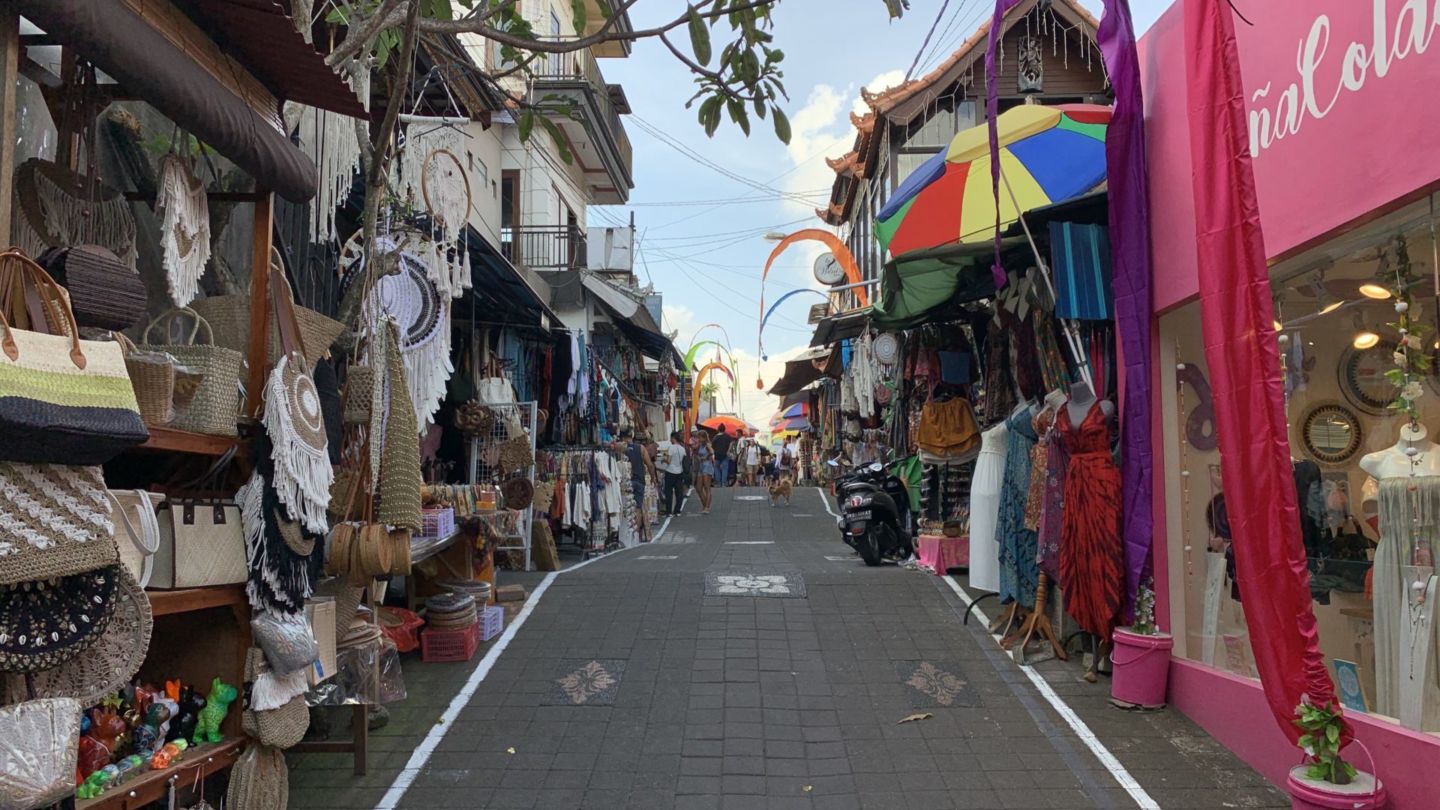A trip to Ubud is incomplete without a visit to its famous art market. Now that the landmark has closed temporarily to give way to a modern facelift, there is concern that the market won’t recapture its old charm when it eventually reopens.
Pasar Ubud (Ubud Art Market), which made an appearance in the iconic 2010 film Eat Pray Love, is a marketplace for everything, from Bali handicrafts to clothes to produce like vegetables and meat. It has supported the town’s tourism industry and the locals for decades.
In February, everything came to a halt when Pasar Ubud shut down for renovations and its old structures flattened by bulldozers. Sellers packed up their stands and were asked to relocate to vacant plots of land for the time being.
Few know for how long they would have to make the sacrifice. In July, the reconstruction contract with Citra Prasasti Kencana KSO was terminated due to a reported lack of progress since May 17, delaying the market’s reopening.
I Gusti Ngurah Suastika, who heads the Ubud administrative village, said a new contractor has since been appointed and that work restarted on Aug. 19.
“Before, the market was run-down so it will be reconstructed to make the space more open, and we’ll add photo spots,” Suastika told Coconuts.
According to the chief, the project was supposed to be concluded by December of this year. However, recent reports say construction may have to go on until 2024.
Vendors have also been moved out to different locations in Ubud, including the parking lot at Monkey Forest, Batukaru Temple’s central parking area, Padangtegal Village, and around Sambahan.

Though an official link was never established, it’s hard to divorce the Pasar Ubud renovations from the government’s “White Paper Masterplan”, a scheme that centers around the rebuilding of attractions in Ubud, Tegallalang, and Payangan, which are known by the portmanteau “Ulapan.”
The plan is part of the Bali Economic Recovery and Transformation Strategy, launched to replenish the island’s tourism industry after the pandemic bust. Steps include paying more attention to traditional markets, giving vendors guidance and training, and the overall guarantee of their well-being.
Not all parties appreciate the revitalization efforts. With Bali’s tourism industry on the rebound, Ubud’s roads are now regularly congested with traffic. To add, many vendors from the market also set up shop on the streets and in narrow alleyways, as they attempt to get as near as possible to Pasar Ubud in hopes of recapturing the foot traffic of old.
“The vendors in the market were all informed to move before the reconstruction, but it was very rushed so vendors had to relocate and set up on their own,” Suastika noted.
“Many refused to relocate, especially in Padangtegal, because it was too far from the town’s center. So they are out on the main roads.”

Anak Agung Raka, a cultural expert and alumnus of Warmadewa University, notably aired his concerns that Pasar Ubud’s traditional structure will be destroyed.
“Foreign visitors to Ubud will be looking for traditional Balinese attractions, not a modernized version of it. ” Raka reasoned.
“Foreigners are used to [modernism] back in their home countries.”
Coconuts sought comments about the renovations from the relocated vendors, but no one agreed to go on record on the day of our visit. There was a palpable sense that this was a sensitive issue. Speaking out against it would rob them of a figurative seat at the table when the market eventually reopens.
Some customers we spoke to said their daily routines have been interrupted by the project. One housewife from Bangli said she relied on Pasar Ubud for all of her daily needs.
She said she would visit the wet market on the lower floor in the mornings, where she would buy vegetables, meats, and flowers for Balinese offerings. She recalled that sellers converged there from all around the island, as far as Kintamani and Bedugul. The customer explained that the shops upstairs would open later in the day and sold clothes, jewelry, and souvenirs.
“You could find everything there, which was convenient,” she elaborated.
Now, she visits the same vendors at their temporary stands; some in the relocation spots, others out on the streets. Instead of her usual single trip to Pasar Ubud, she has to travel all over the area for her groceries.
“I hope that the renovations will finish quickly so the market operates like normal, and hopefully the traffic will lessen,” she said.
However transformative the renovations would be for Pasar Ubud, the market may run the risk of being left behind and forgotten if it shuts down for too long.





Reader Interactions